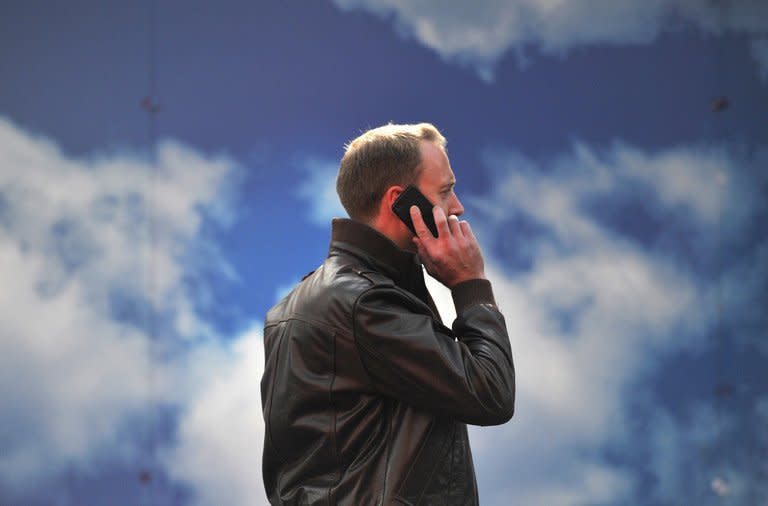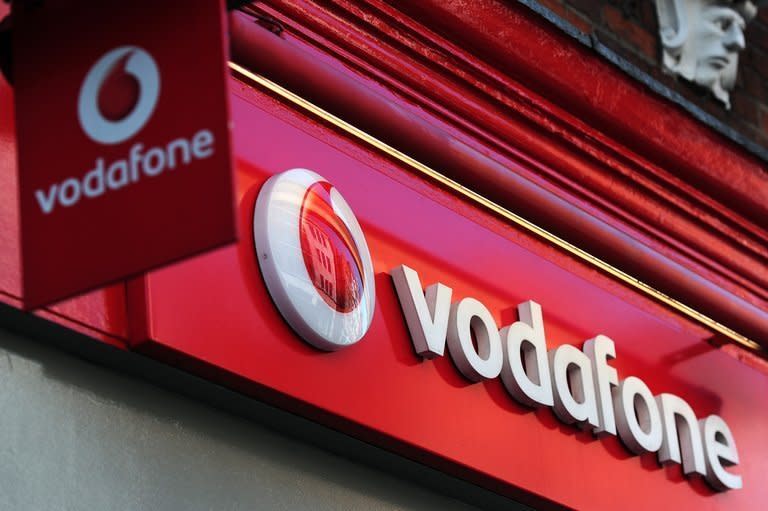Britain raises less than hoped in 4G auction
Britain raised far less than expected from the auction of its super-fast 4G airwaves auction, a watchdog said Wednesday, dealing a blow to finance minister George Osborne's deficit reduction plans. Telecoms watchdog Ofcom announced that it has raised £2.341 billion ($3.615 billion, 2.692 billion euros) from selling 4G mobile licences to five companies that will provide the country with super-fast mobile Internet services. That was more than £1.0 billion less than the £3.5 billion forecast last year by the government. The licence fees cover a period of 30 years. "After more than 50 rounds of bidding, Everything Everywhere Ltd, Hutchison 3G UK Ltd, Niche Spectrum Ventures Ltd (a subsidiary of BT Group plc), Telefonica UK Ltd and Vodafone Ltd have all won spectrum," Ofcom said on Wednesday. "This is suitable for rolling out new superfast mobile broadband services to consumers and to small and large businesses across the UK," it added in a statement. Vodafone, which successfully bid £790 million for its licences, welcomed the outcome. However, economists said the news would disappoint Chancellor of the Exchequer Osborne, who is struggling to bring down the budget deficit and is due to unveil his annual budget on March 20. "The proceeds are some £1.0 billion less than the £3.5 billion that the Treasury were hoping for, so it is a blow to the public finance targets that they could very much have done without," said IHS Global Insight economist Howard Archer. "While the 4G shortfall is only a small blow in itself given the size of the government's deficit, it will nevertheless add to the perception that the Treasury is unlikely to meet its borrowing targets." The Office for Budget Responsibility -- the government's economic-forecasting body -- had made the initial £3.5-billion estimate back in December 2012. "At the time we highlighted this estimate as an area of particular uncertainty in the December forecast. We will include the final proceeds announced today in our budget forecast in March," an OBR spokesman said on Wednesday. He added: "This estimate was based on external analysts' reports and the value of comparable spectrum auctions outside the UK." Work and Pensions Secretary Iain Duncan Smith argued that the government had never banked on raising the full amount to fund its spending plans. "The government never set out its stall on the basis that every penny that was predicted would come in," he told BBC News. "On that basis we are planning to fund all the programmes that we have got at the moment and so is the Treasury. "Let's be honest, it was a prediction by independent experts, but the reality is until the receipts come in you don't count that money." Britain had in fact launched 4G services in October last year, allowing the country to catch up with the global roll-out. Everything Everywhere -- formed by the merger of the Orange and T-Mobile networks in Britain -- went live with the service ahead of the full auction result. 4G, which operates five times faster than the current 3G network, allows users to download large e-mail attachments quickly, watch live television without buffering, make high-quality video calls and play live games on the go. The service is available on Apple's iPhone 5 and 4G phones from HTC, Samsung, Nokia and Huawei. Britain's government had earned a huge £22.5 billion in 2000 from its 3G licence sales, which came at the height of the dotcom bubble.



